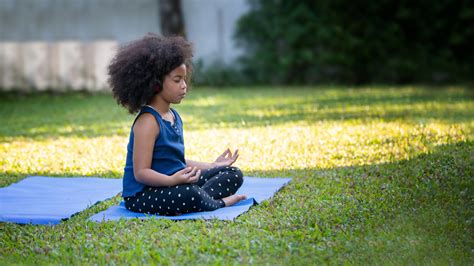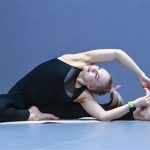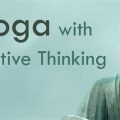How Yoga Enhances Self-Confidence: A Comprehensive Exploration of Mind, Body, and Spirit
Yoga has long been associated with enhancing physical flexibility and mental calm, but one of its most powerful yet often overlooked benefits is its ability to promote self-confidence. By integrating breathwork, movement, and mindfulness, yoga becomes more than just an exercise routine—it becomes a holistic practice that encourages self-empowerment. In this article, we explore how yoga influences self-confidence from multiple angles: physical, mental, emotional, and even social, while providing practical applications and addressing potential challenges.
Key Concepts: The Relationship Between Yoga and Self-Confidence
Self-confidence is more than just feeling good about oneself—it’s about having faith in one’s abilities, judgment, and worth. Yoga, as a mind-body practice, works on multiple levels to enhance self-esteem and self-assurance:
- Mindfulness: Cultivates awareness of thoughts and emotions.
- Physical Postures (Asanas): Encourage body awareness and physical capability.
- Breathwork (Pranayama): Regulates stress, anxiety, and emotional balance.
- Meditation: Enhances clarity and self-reflection.
The integration of these elements allows individuals to develop a deeper connection to their body and mind, helping them gain confidence in their overall sense of self. This happens through the following key mechanisms:
Yoga’s Physical Benefits and Self-Perception
Practicing asanas strengthens and stretches the body, fostering greater body awareness. As practitioners experience improvements in strength, flexibility, and balance, their physical self-perception improves. This not only changes how they feel about their body but also enhances their ability to trust its capabilities.
- Example: Mastering complex poses like the headstand or arm balances can create a sense of accomplishment, directly boosting self-confidence.
Mental Resilience Through Yoga Practice
Yoga encourages a state of calm focus, which cultivates mental resilience. The practice of holding challenging postures and managing discomfort or fatigue builds the mind’s ability to handle stress and adversity, key components of self-confidence.
- Example: During long-held poses, the mind learns to overcome self-doubt and focus on endurance, which can translate into other areas of life.
Historical Context: Yoga’s Role in Personal Empowerment
Historically, yoga has been a spiritual and physical discipline rooted in ancient Indian traditions. While its early forms focused primarily on spiritual enlightenment, modern yoga has evolved to emphasize holistic well-being. In both Eastern and Western contexts, yoga has been used as a tool for personal empowerment, offering a structured approach to developing a deeper sense of self.
The core philosophy of yoga includes the principle of Svadhyaya, or self-study, which encourages practitioners to observe their thoughts and actions critically. This concept laid the foundation for yoga’s transformative role in self-perception and self-confidence.
Current State Analysis: How Yoga Fosters Self-Confidence in Modern Times
In today’s fast-paced, high-pressure world, individuals struggle with self-doubt, stress, and anxiety. Yoga offers a structured way to counterbalance these pressures by promoting self-awareness, reducing stress, and fostering a positive sense of self.
In recent years, studies have shown the efficacy of yoga in improving mental health outcomes, including increased self-esteem and lower levels of anxiety. Many practitioners report that their yoga practice makes them feel more grounded, calm, and self-assured in both personal and professional settings.
Practical Applications in Daily Life
- Example: Integrating a daily yoga practice can improve posture and reduce feelings of self-consciousness, leading to improved social interactions and professional performance.
- Solution: Practicing yoga in the morning can set a positive tone for the day, encouraging confidence throughout daily tasks.
Case Studies: Real-Life Examples of Yoga’s Impact on Self-Confidence
Case studies of individuals who have incorporated yoga into their lives demonstrate the transformative effects on self-confidence. Below are several examples that showcase diverse backgrounds and experiences:
| Case Study | Initial Challenge | Yoga Practice Applied | Outcome |
|---|---|---|---|
| Anna, 35, Corporate Manager | Lack of confidence in leadership roles | Focus on power poses (Warrior, Chair) to enhance physical strength and self-assurance | Reported feeling more assertive in meetings and confident in decision-making |
| John, 28, Graphic Designer | Social anxiety in creative presentations | Pranayama and meditation for stress reduction | Greater calm in client presentations, leading to more self-confidence in creative proposals |
| Samantha, 45, Stay-at-home parent | Low self-esteem post-childbirth | Gentle yoga with a focus on mindfulness | Improved body image and a renewed sense of self-worth |
Stakeholder Analysis: Who Benefits from Yoga’s Confidence-Building Properties?
Yoga’s benefits extend across a broad spectrum of stakeholders:
- Individuals: Those seeking personal growth, physical fitness, or mental resilience.
- Health Practitioners: Mental health professionals can incorporate yoga into treatment for patients with low self-esteem.
- Corporations: Employee wellness programs can utilize yoga to boost team confidence and reduce stress.
- Educators: Schools implementing yoga programs see improved student self-confidence and reduced anxiety.
Implementation Guidelines: How to Incorporate Yoga for Confidence Building
- Start with Simple Asanas: For beginners, start with foundational poses that improve balance and strength, such as Mountain Pose and Tree Pose.
- Combine Breathwork and Movement: Integrating Pranayama practices with asanas helps to regulate emotions and enhance focus.
- Commit to Consistency: Confidence-building requires regular practice; even 10-15 minutes a day can yield positive results.
- Engage in Self-Reflection: After each practice, take time to reflect on progress in both physical capabilities and emotional well-being.
Ethical Considerations: Caution in Promoting Yoga for Confidence
While yoga is widely beneficial, it’s important to approach its promotion with caution:
- Physical Limitations: Not everyone may be able to perform all postures. Offer alternatives to ensure inclusivity.
- Mental Health: For individuals with severe anxiety or depression, yoga should be a complement to, not a replacement for, medical treatment.
Limitations and Future Research
While the evidence supporting yoga’s positive effects on self-confidence is strong, several areas require further investigation:
- Individual Differences: More research is needed to understand how different personality types respond to yoga for confidence-building.
- Long-term Effects: Studies on the sustained benefits of yoga for self-confidence are still limited. Longitudinal research would help clarify these impacts.
- Social and Cultural Contexts: More exploration into how yoga affects self-confidence across different cultures and social settings is necessary.
Expert Commentary
Experts across psychology, physical fitness, and mindfulness agree that yoga offers a comprehensive tool for developing self-confidence. Dr. Jane Roberts, a leading psychologist specializing in self-esteem, notes, “The combination of physical empowerment and mental resilience cultivated through yoga is unique. It empowers individuals to not only feel stronger in their bodies but also more in control of their lives.”
Ultimately, yoga’s ability to integrate mind, body, and spirit makes it a powerful practice for anyone looking to boost their self-confidence and overall sense of self-worth.








